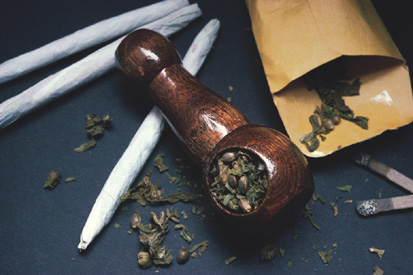Current Temperature
Land-use bylaw involving cannabis-related businesses continues to spark discussion
Posted on September 19, 2018 by Taber Times TIMES FILE PHOTO
TIMES FILE PHOTOBy Trevor Busch
Taber Times
tbusch@tabertimes.com
With time running out for the town to implement cannabis-related land use amendments prior to the federal government’s Oct. 17 deadline for legalization, council has moved to pass first reading of a new bylaw.
In mid-July, the town’s initial effort at a cannabis land use amendment bylaw was shot down by town council at second reading in a 3-3 tie vote after a clash of opposing views on separation distances, leading the town back to the drawing board.
Prior to council’s Sept. 10 regular meeting, a public hearing was held on proposed Bylaw 17-2018, which saw a local business operator speaking in favour of the bylaw express his views on the town’s land use regulations related to cannabis.
“I wanted to touch on a few key points of the downside of not allowing the legal sale of cannabis in the town of Taber,” said Bruce Decoste. “The way I see it, if you do not allow the legal sale of cannabis in the community, I believe a large amount of our town will go to Lethbridge to purchase their cannabis — and trust me on this, there’s a lot more people than you would think that smoke cannabis. In this town a lot might not admit that they do, but they do. There in Lethbridge, we all know that they will then do their other shopping while they’re there. They may even make it a weekly trip as time goes on, this in itself will hurt our town, including my own vape shop.”
Under Bylaw 17-2018, cannabis retail sales are proposed as a discretionary use in the downtown commercial and comprehensive commercial districts, but not within 100 metres of any school or hospital use.
Applications will require the approval of the Municipal Planning Commission (MPC), but there will be no discretion for the MPC to grant variances to establish separation distances.
More specifically, separation distances would include hospitals, post-secondary schools, private schools, elementary schools and secondary schools.
“Not allowing the legal sale of cannabis will also allow easy access for our kids in the town through the black market sales that will flourish in our town, due to the fact that there is no place to buy legal cannabis,” continued Decoste. “Not to mention the people that have to drive to and from Lethbridge for the legal cannabis, may be more apt to drive impaired coming from Lethbridge to Taber.”
Cannabis production and distribution is also proposed as a permitted use in the Medium Industrial District (M-2).
The MPC can also direct specific design requirements or measures, including facade design, lighting, signage, screening measures, building orientation and access, and measures to prevent nuisances such as odor.
“I myself, and other people, believe the sale of legal cannabis in the town will bring more people in from the outlying areas to Taber to buy their legal cannabis, and while they’re here, they’ll do their shopping in Taber, which we all know could be of great benefit to our town,” said Decoste.
Administration would also propose allowing cannabis production and distribution as a permitted use in the industrial districts to allow council control over the use, and to direct administration to treat production and distribution of cannabis in a manner similar to any agricultural distribution use. This would be in keeping with “discussions relating to promotion of the industry.”
Administration also analyzed the approach of several other municipalities that have finalized their land use amendments. Business license costs for cannabis production for “areas within our vicinity” ranges from $50 to $774 (non-resident fee).
“Most municipalities did not distinguish between cannabis production and distribution and a regular business licence,” reads a statement in administration’s background to the bylaw. “With the recent approval of business license amendments Taber fees were set at $2,500. This may be something we need to revisit if this industry is something the town wants to attract in order to be competitive.”
On Aug. 20, council voted to add provisions to their Council Procedural Bylaw to allow for items that have been voted on to be brought back to council for further discussion before a six month period has expired. Under the former procedural bylaw, when a motion had been carried or defeated, the issue could not be brought back to a regular meeting for further consideration until at least six months following the vote.
This inclusion had caused problems for town council in the past, where on several occasions council had voted to ignore this provision in order to bring a pressing issue back to council for immediate reconsideration. Defeat of the original land use amendment bylaw in mid-July had left question as to whether revised amendments could be put in place before an Oct. 17 legalization date without council violating the provisions of its own procedural bylaw.
Following discussion on Sept. 10, council voted 5-2 to pass first reading of Land Use Amendment Bylaw 17-2018 for the purpose of allowing cannabis retail sales as a discretionary use in the downtown commercial and comprehensive commercial districts, but not within 100 metres of any school or hospital use; and cannabis production and distribution as a permitted use in the medium industrial district.
The motion was put forward by Coun. Garth Bekkering. Prior to the vote, Coun. Joe Strojwas asked Bekkering to accept a friendly amendment to increase separation distances.
“I’m still not happy with the 100 metres. I’d like council to consider increasing that to 150 metres,” said Strojwas. “We had quite a lengthy discussion about this last time, with different opinions on that.”
Bekkering refused the amendment to his motion. Bylaw 17-2018 will still need to pass second and third reading before it officially becomes law.
Leave a Reply
You must be logged in to post a comment.



